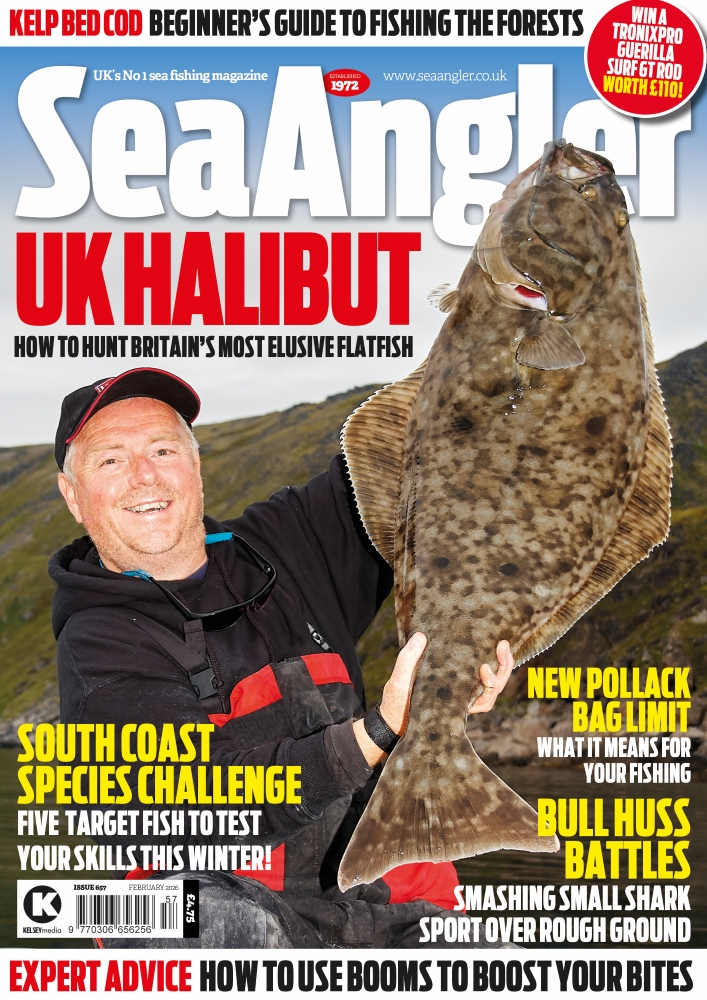A new set of rules affecting boat anglers could see offenders facing up to two years in prison – here’s what you need to know to stay on the right side of the law
Boat anglers beware! On the 31st March the Merchant Shipping (Watercraft) Order 2023 came into force. This lays out a list of regulations and requirements that operators of personal watercraft (any craft capable of moving under its own mechanical power’) are now required, by law, to comply with.
Affecting the whole of the UK, the legislation is intended to act as a deterrent to those who might otherwise use watercraft in a reckless or inappropriate manner. Sea Angler understands that in particular it has been the reckless actions of jet ski operators driving dangerously, disturbing wildlife and generally acting in an anti-social way that has resulted in this legislation.
The Order places a duty on the owner of a watercraft within UK waters to take all reasonable steps to ensure that it is operated in a safe manner. If the owner fails to do so, then they may commit an offence that is punishable by imprisonment for a term, not exceeding two years or a fine, or both. The intention being to reduce accidents at both the coast and inland waterways resulting in personal injury or damage to property.
To me it’s a bit like allowing anyone to buy a high-performance car or motorbike, then drive or ride this vehicle on public highways, without a legal requirement for any formal training and qualification. It will be down to the individuals to acquaint themselves with the highway code, and then to follow the rules, which I am sure you will agree is crazy. For many years I have been a firm advocate that, as in many other countries around the world, owners and operators of power boats and similar vessels must prove they have sufficient knowledge and understanding of maritime law, plus the necessary boat handling experience, to operate craft responsibly and safely, without posing a risk to others. Sadly, this is still not
the case.
At first glance at the ‘new’ legislation not a lot has changed. Many of the requirements listed are already covered under the International Regulations for Preventing Collisions at Sea, but as we have all seen on too many occasions they receive little, if any, enforcement. The new legislation does however permit inspectors and surveyors, in accordance to Article 12 of the Merchant Shipping (Watercraft) Order 2023 to have the power to inspect and to detain any watercraft considered as being dangerously unsafe in its condition and unfit to go to sea, or where there is danger to human life.
IGNORANCE IS NO EXCUSE
One of the main differences for operators of power driven watercraft is that now there can be no excuses for operating unsafe vessels in an irresponsible manner, or causing potential risks and hazards to other water users, without fear of prosecution. Ignorance of the law is no longer an excuse, and vessel users/owners can face total loss and even imprisonment if they are at fault. A full and concise explanation of exactly what is now required can be found on the RYA website.
Here are some of the main points:
- You must not operate a vessel under the influence of alcohol or drugs.
- You must ensure safe passage past other vessels, passing at a clear distance apart and at safe speeds so not to cause navigational problems to other vessel users.
- You must follow speed limits in restricted areas at all times.
- Navigational lights must be installed and used during times of darkness or restricted visibility.
- You must display a white 360-degree vessel anchor light when anchored during the hours of darkness, and low light.
- You must adhere to designated traffic separation schemes, such as those within the English Channel. If you do cross these legislated zones, you should do so at as close as possible to 90 degrees.
- You must display an at anchor sign with clear 360-degree visibility, for other vessels to know you are at anchor. The sign is a black circle or ball tied to a wire rope above the cabin or on a vertical pole clear from other structures such as radar domes.
Some of the newer points include:
- All vessels must be lit at all times to a certain degree when moored anywhere other than their normal mooring. This includes when making use of temporary overnight moorings in shipping channels at different ports, harbours or rivers. Or where you are not a registered vessel, other than when moored at pre-arranged dedicated temporary moorings away from busy waterways.
- You must ensure one-to-one direct communication with restricted operating vessels, such as dredging vessels working in a harbour entrance, from whom you will have to request permission to pass by on either the port or starboard side at low speed. If this request is denied, you have to wait until they give permission.
- Vessels must be suitable for use on open seas, with adequate gunnels and stern heights to prevent sinking by wave action.
- Your vessel must be identifiable from above by helicopter meaning something like the name of your vessel must be displayed in large bold letters on the top of your cabin.







